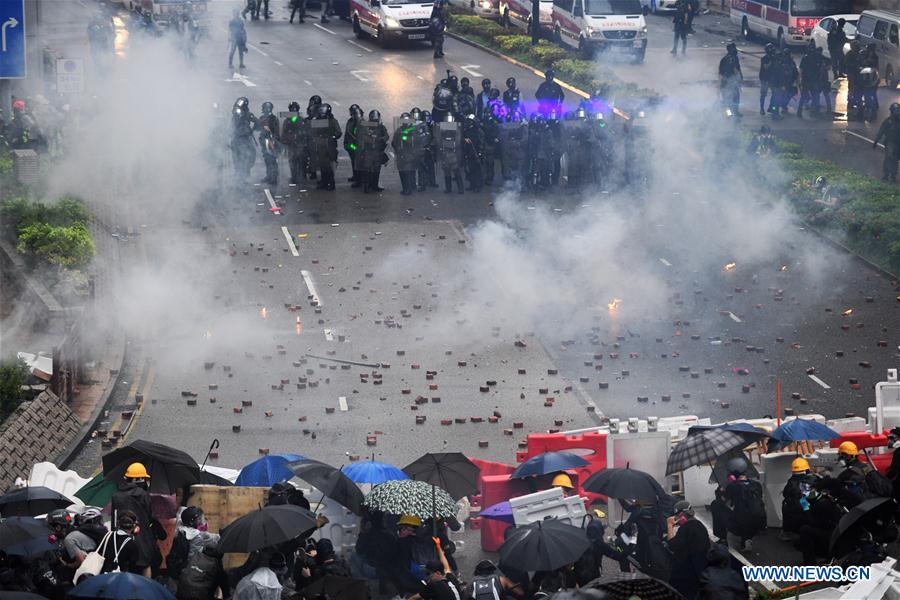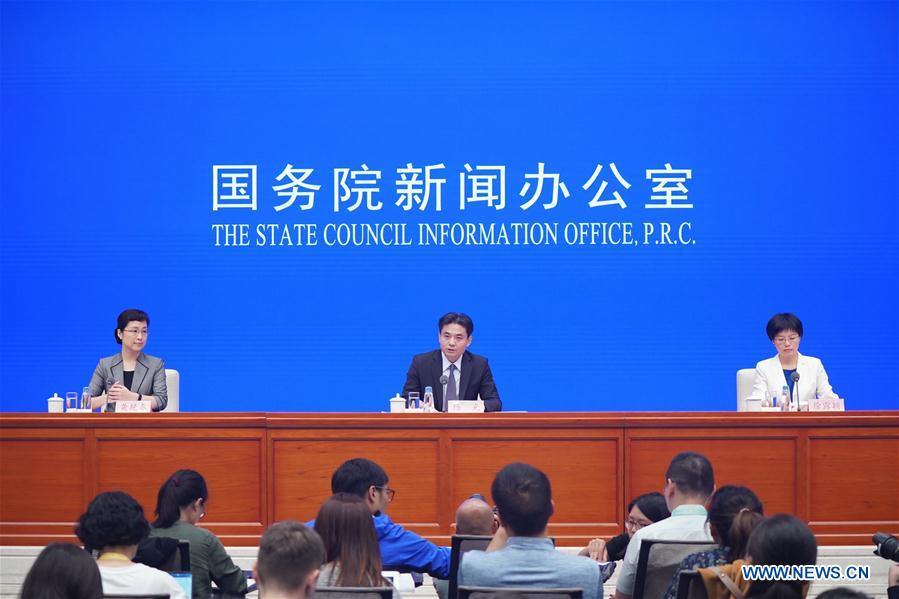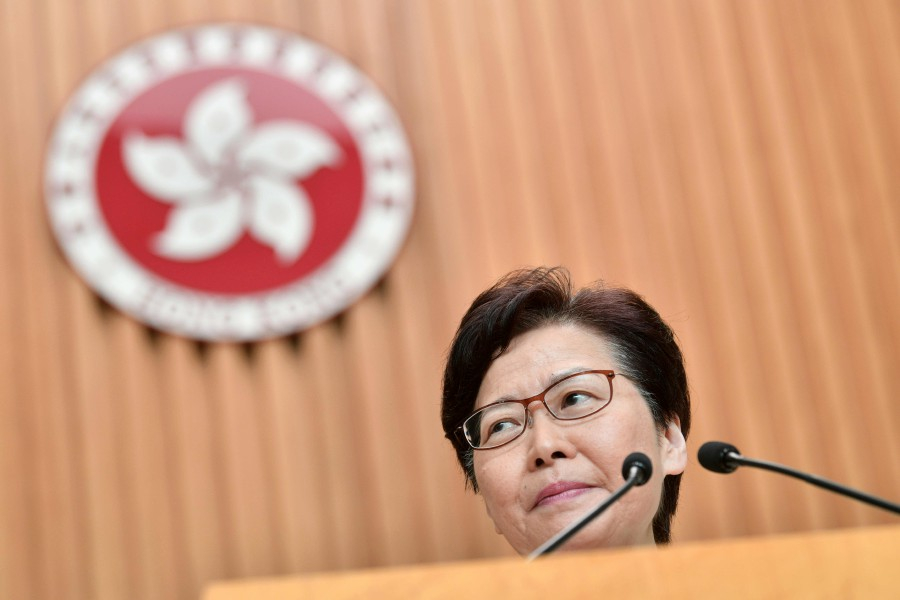Violent protests have plagued Hong Kong for nearly three months. The opposition and some radical individuals have taken advantage of the pretext of peaceful demonstrations and turned it into overt provocations against the rule of law in the city, blatantly defying the principle of "One Country, Two Systems”.
According to the Hong Kong police, a total of 1,453 suspects have been arrested after widespread unrest broke out on June 9, involving various charges of serious violent activities. As a result, radicals assaulted police officers, with some having personal information leaked, or physically ambushed and smeared over the past 100 days.
Looking back on what happened during the past three months, increasing violence and chaos have posed serious threats to the safety of Hong Kong residents' lives, property, business environment and the rule of law, pushing the Asian financial hub on the brink of recession.

Radical protesters confront police officers in Tsuen Wan, in the western New Territories of Hong Kong Special Administrative Region, August 25, 2019. /Xinhua Photo
Radical protesters confront police officers in Tsuen Wan, in the western New Territories of Hong Kong Special Administrative Region, August 25, 2019. /Xinhua Photo
Hong Kong's Airport Authority said on Sunday the international airport suffered its biggest monthly drop in passenger number in a decade, a decline of 12.4 percent. Last week, the London Stock Exchange Group Plc rejected a takeover proposal from Asian rival Hong Kong Exchanges & Clearing Ltd., citing LSE would prefer a partnership with the Shanghai Stock Exchange, for a "direct channel to access the many opportunities with China."
However, some radical protesters continuously doubled down on their violent acts, causing mayhem in the city despite the HKSAR government's withdrawal of the fugitive bill, designed to protect the general public and local business in the city.
Here is a timeline of the escalating violent acts in Hong Kong since June:
More tools in HKSAR legal box to end the farce
What the three-month-long demonstrations, stigmatized by atrocities and violence, can bring to Hong Kong, is a question that even the protesters themselves who still block streets, airports and shopping malls today, can't seem to answer.
"This year is coming to an end. After all, the average Hongkongers always have to care about what they can bring to their family's table," said Zhang Dinghuai, professor at Shenzhen University's Center for Basic Laws of the Hong Kong and Macao Special Administrative Regions.
Prof. Zhang told CGTN he believes that the "Hong Kong Special Administrative Region (HKSAR) government can handle the situation by themselves," and "Beijing is bidding for it firmly."
One of the "five demands" proposed by protesters is HKSAR Chief Executive Carrie Lam's resignation, which has been turned down by Lam. Prof. Zhang denounced the radical thoughts, saying "no single candidate is qualified for the position by hand right now, and the resignation would bring a whole round of tedious procedure of election."

Yang Guang (C), spokesman for the Hong Kong and Macao Affairs Office of the State Council, addresses a press conference in Beijing, July 29, 2019. /Xinhua Photo
Yang Guang (C), spokesman for the Hong Kong and Macao Affairs Office of the State Council, addresses a press conference in Beijing, July 29, 2019. /Xinhua Photo
Hong Kong and Macao Affairs Office of the State Council spokesman Yang Guang reiterated China's support for the HKSAR chief executive during a press conference last week. He said that the situation in Hong Kong is taking a positive turn, but still remains "grim and complex." Everyone who truly cares about Hong Kong should keep an unswerving stance on stopping violence and restoring social order.
Confronted with the chaos caused by the lingering unrest in Hong Kong, the options left to pacify the upheaval are dwindling. But rumors about a possible "army intervention" appear to be "fake" news.
The Basic Law Article 14 reads that military forces stationed by the Central People's Government in the HKSAR for national defense shall not interfere in the local affairs of the region, except at the request of the HKSAR government "when necessary."
This "necessity" is a tool that's available for the HKSAR government after it exhausts all preconditions under the law. Another option before a garrison is the "emergency law," officially known as the Emergency Regulations Ordinance.

HKSAR Chief Executive Carrie Lam speaks to the media during a weekly press conference in Hong Kong. /AFP Photo
HKSAR Chief Executive Carrie Lam speaks to the media during a weekly press conference in Hong Kong. /AFP Photo
When Lam was asked at a regular press conference about whether the government would actually consider invoking the law, she did not dismiss the possibility.
"All laws in Hong Kong – if they can provide a legal means to stop violence and chaos – the SAR government is responsible for looking into them," she said.
It's considered a "nuclear option," said Professor Michael Davis, a resident fellow at Woodrow Wilson International Center and former law professor at the University of Hong Kong.
Prof. Zhang also noted that "Once it is activated, the situation can be distinguished immediately, but the HKSAR has to seriously look into the consequences (that) come after it."